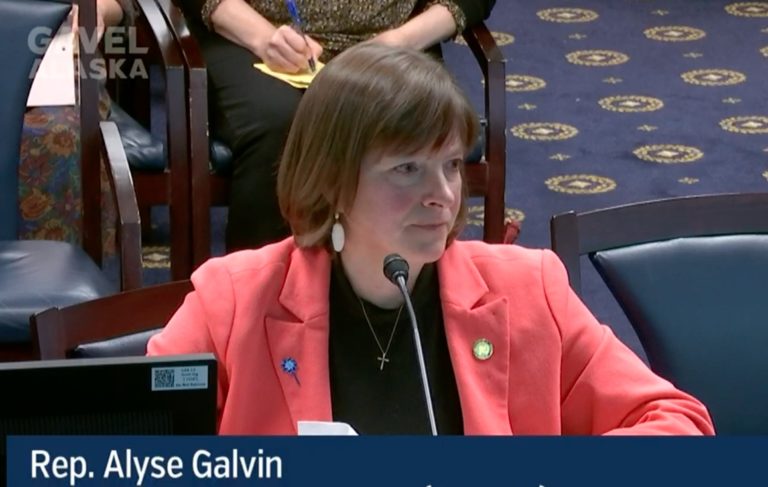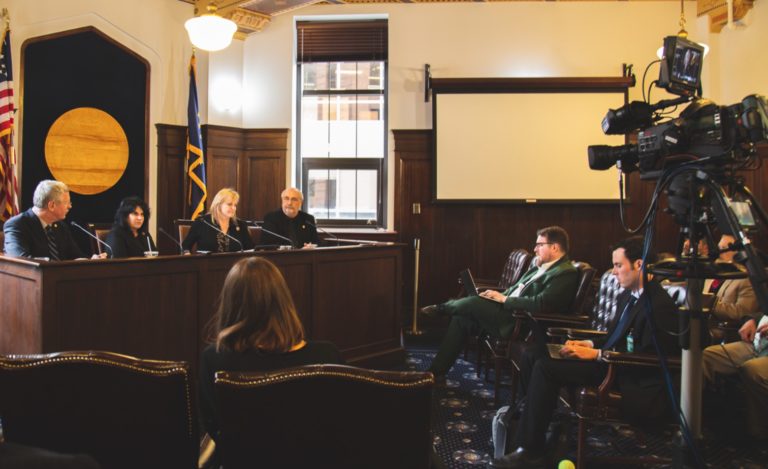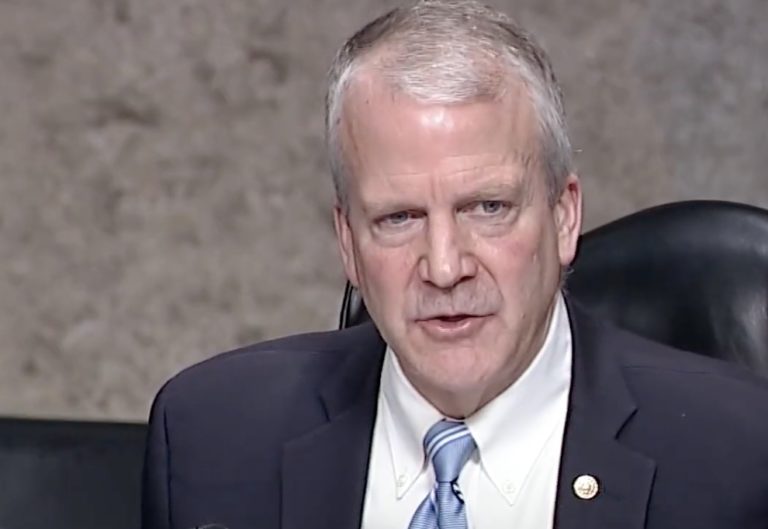A resolution to be considered at Tuesday’s Anchorage Assembly meeting appears to give the Assembly the ability to end public comment at meetings if the members of the body deem the comments to be hateful.
It also may give the Assembly authority to crack down on political speech in general in the city, by labeling it “disinformation,” “misinformation,” or informed by QAnon, a conspiracy subset. It could even go farther, and tacitly give the Assembly permission to sanction or punish speech. If someone challenges the municipal election methods or results, that person may have his or her microphone cut during a meeting, or the Assembly chair could order them arrested for fomenting hate or violence.
The resolution is mainly summarized by saying that members condemn hate speech and political violence of any sort. But it calls out QAnon speech by name. QAnon originated as conspiracy theories in a forum on the 4chan website in 2017. It’s difficult to say what QAnon-inspired speech is exactly, and the resolution does not attempt a definition.
The Wall Street Journal does attempt a definition in a story in 2021:
“QAnon is a far right-wing, loosely organized network and community of believers who embrace a range of unsubstantiated beliefs. These views center on the idea that a cabal of Satan-worshipping pedophiles—mainly consisting of what they see as elitist Democrats, politicians, journalists, entertainment moguls and other institutional figures—have long controlled much of the so-called deep state government, which they say sought to undermine Mr. Trump, mostly with aid of media and entertainment outlets.”
According to the Wall Street Journal, “QAnon conspiracy theory alleges that there is a battle between good and evil in which the Republican Mr. Trump is allied with the former. QAnon followers are awaiting two major events: the Storm and the Great Awakening. The Storm is the mass arrest of people in high-power positions who will face a long-awaited reckoning. The Great Awakening involves a single event in which everyone will attain the epiphany that QAnon theory was accurate the whole time. This realization will allow society to enter an age of utopia.”
The “conspiracy theorists” in Anchorage may think the Assembly is trying to sneak one past the public. After all, the resolution is not any sort of emergency, but has been “laid on the table,” which means it’s a last-minute addition to the Assembly’s Tuesday agenda.
Those “laid on the table” items are supposed to be for matters that simply cannot wait to be included on the agenda in a timely way, which would have been last week. Assembly Chairwoman Suzanne LaFrance has said many times that the “laid on the table” items must have some compelling reason for being put on the agenda so late.
Not only is it “laid on the table,” but it’s done so in a special meeting that was called to curb the authority of the Mayor’s Office and give that authority to the Assembly:
“Ordinance No. AO 2023-45, an ordinance of the Anchorage Assembly amending Anchorage Municipal Code Section (AMC) 2.30.020 to recognize the decision making authority of the assembly with respect to uncodified mayoral directives, policies and procedures, and other uncodified policies and administrative practices as applied to the legislative branch, and amending AMC section 3.50.010 accordingly, Assembly Vice- Chair Constant.“
The last-minute anti-speech resolution condemns the threat or use of politics violence and promotes civil discourse in the community, all seemingly acceptable standards for law-abiding citizens. But it goes farther. It specifically mentions election integrity and public buildings where the citizens have traditionally served as watchdogs for democracy. The resolution condemns bigotry and hate, and harassment based on race, ethnicity national origin, religion, gender, gender ideology, tribal status, and more.
It condemns white supremacy, but does not condemn any other racial supremacy. The resolution says that “disinformation, misinformation, and online conspiracy theories such as Q-Anon are spreading and inspiring real-world political violence” and further denounces “extremist conspiracy theories, misinformation, and disinformation designed to cultivate an alienated and mistrustful electorate, undermine democratic institutions and processes, and increase the likelihood of political violence.”
The resolution, offered by Robin Dern, the temporary Assembly member who the Assembly appointed to fill out the final weeks of Rep. Jamie Allard’s term in office (after she was elected to the Legislature), gives the Assembly cover to label people who disagree with Assembly members as spreading misinformation, disinformation, or dangerous conspiracies.
The resolution will be among others on the agenda and is likely to be missed even by Assembly watchdogs because of the way is is being slipped into the agenda at the last minute, and the fact that the meeting is not a normal meeting.
The Assembly packet for the Tuesday meeting, which starts at 5 pm, is at this link.
The Assembly meetings are held on the ground floor of the Loussac Library, at the corner of 36th Ave. and Denali St.
Read the anti-speech resolution being offered by Assemblywoman Dern of Eagle River:









